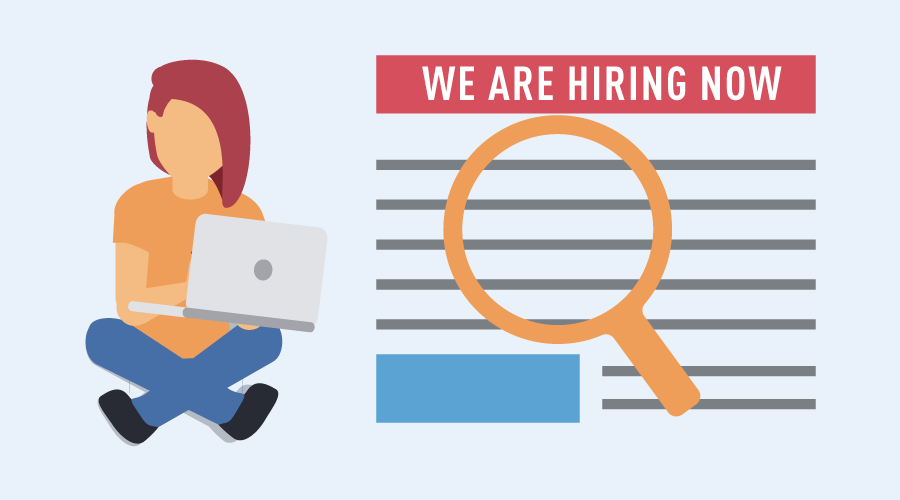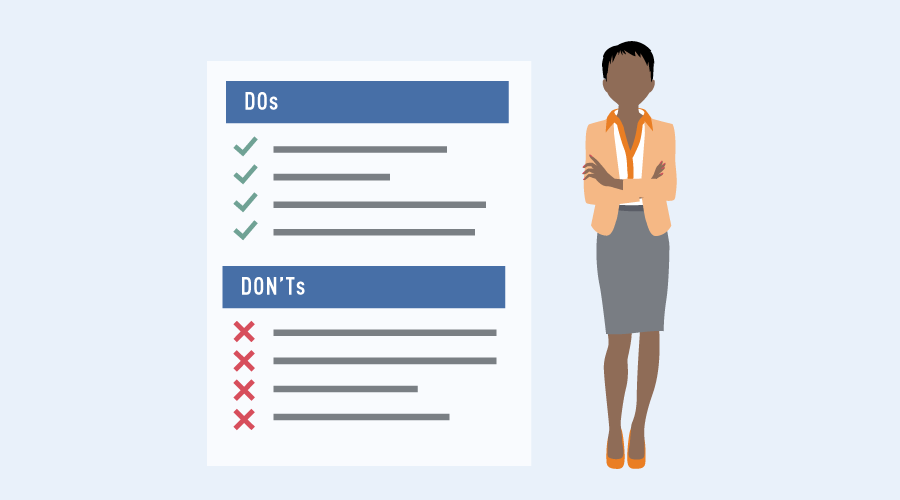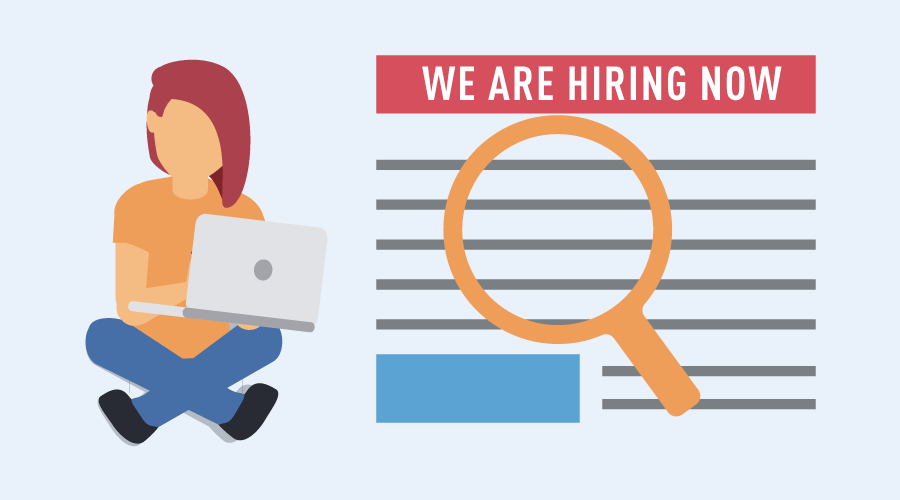As a worker, knowing your skills and talents will help you excel by seeking out and performing in a role that fits your strengths. Knowing yourself requires more than a general sense of intuition about your abilities – it also takes rigorous assessment.The following steps can help you identify what you have to offer.Find out what drives youA majority of millennials say purpose is a priority in their career. This is important to know in assessing, because where there is passion, the drive to succeed, learn and improve follows. Ask yourself what you would do if a paycheck wasn’t on the line. Nurture this curiosity and desire to explore new things, which translates into Learnability, and continual improvement.Identify what’s not workingOn the opposite spectrum, you should identify what you don’t like doing at work, or even if you hate your job. This is likely to be correlated with poor performance. Is the problem to do with your tasks and responsibilities? Or is your low job satisfaction more to do with a difficult boss or coworker? If the problem is your duties, try taking a career assessment questionnaire or seeking out the help of a career consultant. These can help you identify roles in other industries that you may not have considered. If the problem is your boss, you may solve the issue by transitioning to to another department or into another role within the organization.Seek outside perspectiveYou may feel like you know yourself better than anyone else, but you’re not necessarily the most objective evaluator of your own skills. Instead, you can view yourself through the eyes of an employer by taking a professional skills or personality assessment and leverage the results to identify your strengths. Similarly, you can find a career coach to help you better understand your value to employers. Finally, ask your boss, a co-worker, or trusted friend to provide you with feedback.In the end, knowing where you excel – and where you fall short – requires a blend of both introspection and external help and input. Knowing where your true talent lies will help nurture and grow where you have the most potential, and where you can thrive right now.
Know Your Options
-
How Do You Know What You Are Good At?
9 November 2021 
-
Planning for Job Change
1 September 2021 Will this new year bring another transition for you? Here are strategies and skills to help you during potential career transitions in the coming year. Assess your goals A new year can be an opportunity to assess what you want out of work and your life, including perks like flexible scheduling or remote work. Rather than immediately falling into a job search, evaluate your last or current job: What aspects did you like or dislike? Is it time to make a change? Where do you want to go next? Is entrepreneurship an option? Create a life map of where you would like to be in three to five years. Feeling like you have more control over the situation will lessen your perception of stress. Manage your timeSearching for a job is more than a full-time job. Sometimes it feels like you can’t keep up, and other times it feels like all you do is wait. It can help with peace of mind to set aside times to actively search, to write follow-ups, and even to wait guilt-free. Don’t let the job search take up your entire life. Set incremental goalsA new role or career may be your ultimate goal, and achieving that end can sometimes feel overwhelming. To help you get there, set incremental and smaller steps to achieve. You can also pick up freelance work, consulting, contract jobs or even volunteer positions. This part-time or temporary work can help pay bills or bolster your resume while your searching for a permanent job. Don’t overlook these opportunities while continuing to pursue full-time work. Finally, remember that whenever you are feeling overwhelmed or like you have lost control of the process, take a break. Go for a walk or perform an activity that you enjoy.You need downtime to help maintain your mental health, and you can always resume again later.

-
How to Reframe Career Gaps
29 July 2021 For the first time in more than a decade, a single historical event has affected millions of careers at once. The COVID-19 pandemic has impacted not just jobs lost, but also career trajectories for those who were expecting to move up in their organizations or find new responsibilities.The good news is that the large-scale change in work situations has helped change how employers think about “career gaps” on the resume. It’s no longer just about taking a step back in a career –– it can also be seen as stepping up to help families and communities. As a result, LinkedIn has updated profile options to elevate “stay at home parent” roles or sabbaticals for family leave. Here are other ways job candidates can rethink and reframe their job gaps, especially in light of the COVID-19 impact. Become a mentor You can continue to show leadership skills beyond a job title, such as signing on to be a mentor for an organization or an advisor to a start-up. If you want to be a mentor, finding the right mentee is a lot like the other side of the equation. Network and talk to key people in your company or network about the type of person you want to be a mentor to, and be specific. You can also check with your alma mater about alumni/student mentoring programs you can join. Becoming a mentor can be a valuable addition to your experience and resume.Keep improving job skillsThere are no shortage of ways to re-skill and upskill with online education and courses, and not having a full-time job can provide more opportunity for growth in soft skills. This includes communicating, critical thinking, meeting deadlines, being well-organized, collaborating and the ability to analyze and innovate. Employers are seeking these skills more than ever as they are broadly applicable across job titles.Step into volunteer rolesConsider volunteer roles that add expertise and knowledge to your tool kit. Use volunteering as an opportunity to try something new, perhaps a career you always wanted to explore. You may find it as exciting as you dreamed, or it may lack the glamour or fulfillment you envisioned. Follow your passion – when you are giving back to something you believe, it is much easier to learn new skills.Ultimately, employers will be much more understanding of gaps in your resume during this past year, given the circumstances. At the same time, this is an opportunity to keep learning and growing –– and find what you really want to do in your career.

-
Searching for Jobs After College
12 May 2021 Moving from college to the workplace traditionally requires major adjustments, including acquiring new skills on the job and learning to balance independent projects. Right now, economic and public health uncertainty only adds to the stress on college graduates. But stepping back, slowing down and taking concrete steps can help mitigate anxieties and improve your outlook. Here are ways to help navigate the unchartered waters. Build a mentor relationship In college, students can easily stop by a professor’s office hours or book an appointment with your academic advisor or job counselor. The same principles of mentorship are just as important to getting started in the workplace. After you graduate, you have to be more proactive about securing your own mentor. Having a mentor will enable you to learn what employers expect from new grads and you can use the information to make yourself job ready, and also help find new opportunities in sectors that are hiring. Take a skills inventory Does your resume reflect all that you are capable of accomplishing? Make sure that you reflect not just your major and hard skills, but also soft skills like learnability that shows you can make adjustments during turbulent periods. Research from ManpowerGroup has concluded that 65% of the jobs Generation Z will perform do not even exist yet, and right now is certainly a time of disruption and change. Show how your past has prepared you for a future that is evolving and being invented in front of us. Be open to new forms of work Look beyond the full-time permanent roles. In some sectors, hiring is ramping up right now for temporary or short-term work. Taking a temporary job to help meet demand may provide an in to a company, or an end in itself. Today, nearly 9 in 10 workers are open to NextGen work– part-time, contingent, contract, freelance or temporary. As younger workers bring tech-savvy skills to the workplace, new graduates can turn to flexible employment opportunities where it is needed most. Reach out to help others Right now, it’s easy to develop tunnel vision with respect to your own needs. No one will blame you for that. But many others are going through the same uncertainty, and seeking ways to help is not a zero-sum game. Over time, how you treat others builds a reputation. Recognizing others need assistance, offering to be of service through small acts like proofing someone else’s resume or sending an email with encouragement will become an extension of your resume. Do it for its own reward, and it’s likely to help deepen and expand your network as well. After years of being in the school system, it will take new grads time to transition to a new world –– and that’s never been true more than now. For college graduates, it’s important to be patient, keep being productive where you can be, and keep the faith.

-
Are you considering retirement in 2021?
17 February 2021 For some of us, the option to retire is a real possibility - although you may have had very little time to explore what this really means.A life full of activities such as handling job responsibilities, looking after children as well as a myriad of other things might have kept you focused on day-to-day concerns with little time for anything else.When your job comes to an end, this very often frees up the time to look over the parapet and think about what to do next. Retirement can be a welcome prospect for some but for others it may feel frightening – ‘do I need to work?’, ‘will I get bored if I give up work?’ and, ‘do I have enough money to retire?’ are just a few of the questions that can appear when exploring retirement.Orientate YourselfFortunately, retirement support is something that Right Management provides. The starting point begins with orientating yourself in relation to what may seem rather alien – it’s about taking control of the future. Exploring retirement helps you take stock of your current situation while encouraging you to spend time crafting a vision of your desired future, based on your own values, drivers and other factors.The mechanics of the program provide you with the option to speak to a specialist self-employment consultant in a one-to-one meeting, or attend a webinar focused on helping you reflect on personal circumstances as part of a group, in line with program deliverables.It’s important to not put undue pressure on yourself and to take adequate time to think about individual circumstances. If your job has suddenly come to an end before planning to retire, this might require some reflection and recalibration. The starting point is always to take stock of your current situation, what’s important to you and how that relates to your own vision of the future.Adopt and Open MindsetWe very often have greater freedom to act when planning retirement than we realize. For many there’s an opportunity to think about your own interests rather than simply being driven by financial considerations. Limiting constraints such as paying for mortgages, university education, schooling etc. have often disappeared as younger family members have left the home. Therefore, exploring retirement enables you to make choices based on what you’d really like to do, and provides the freedom to adopt an open mind-set.Develop Your Plan of ActionAnother key element of retirement is working towards a plan of action. It’s helpful to understand the different pieces of the puzzle that need to be analyzed and addressed so that you can consider everything necessary before moving forward. It's worth noting that adequate reflection on those key elements includes financial and legal considerations, and adopting a holistic perspective is always advised before drawing up a retirement plan.The RightEverywhere website includes useful information on retirement planning and helpful resources that target a range of important retirement issues. These resources can help make the transition as smooth as possible, reminding you that retirement is an exciting part of your life journey that opens many new opportunities. And Right Management is equipped to support those transitioning to retirement in a productive and meaningful way.This article is contributed by Right Management UK.Author: David Hurst, Consultant— Right Management UK

-
Is self-employment an option for you in 2021?
17 February 2021 It's important that you understand the risks and challenges associated with setting up your own business in 2021.Self-employment is an overarching term for several different potential career paths that might form a part of a career plan. And Right Management’s offering around self-employment covers setting up your own business all the way through to pursuing the option of interim management and contracting.And each of these paths provide potential opportunities and benefits as well as associated downsides. Although the downsides will, to some extent, be impacted by individual circumstances. The focus of this article in on just one of these paths, and that’s setting up your own business.Do adequate researchAn important consideration when setting up your own business is spending the time needed to undertake adequate research. Setting up your own business shouldn’t be taken lightly, as the literature on our RightEverywhere website will tell you that more than half of Britain’s small businesses that collapse do so because of cash-flow problems.And the sheer number of start-up businesses ending in failure often comes as a surprise to those who uncover the data for the first time. So, make sure you do your research to avoid becoming another statistic.Assess market conditionsAt the current time, market conditions remain depressed and the impact of Covid-19 on small businesses, and the wider economy, is yet to be fully realized. So it would be wise for you to act cautiously; being extra careful about due diligence, and ensuring you put a robust plan of action in place before proceeding. Ultimately, if you think now might just be a great time for you start a new business, you have ensure you keep abreast of market conditions.Identify your marketIt's extremely important that you establish whether the product or service being offered does in fact have a market. Identifying potential competitors is another important consideration and helps you think about viability. A practical example springs to mind of someone who secured funding for their software product from one of their clients, but when attempting to roll out their product more widely, discovered there was a limited market for it. In addition, there were so many competitors selling the same product at a much lower cost in an area that wouldn’t have been seen to be business critical, particularly in a slowing market. So, make sure you know and understand your market before starting your own business.Spend time on marketing initiativesAdequate marketing initiatives are essential. You simply cannot remain a ‘techie’ forever in a start-up business and hope to succeed. You might have a brilliant product from a technical perspective, but if you can’t market or sell the product, problems inevitably lie ahead. So, we recommend spending as much time on your marketing campaign and sales effort as you put into the initial technical design of your product or service.Remember, marketing is a fast-evolving functional specialism that's heavily impacted by technology. And new ways of reaching a target audience through Search Engine Optimization (SEO) and Artificial Intelligence (AI) provide more impressive ways to connect with future customers.Adopt a flexible approachRemaining optimistic is key but it’s also essential for new business start-ups to question and challenge their thinking on a continuous basis. It’s easy to become so emotionally attached to your plans that you lose objectivity and perspective; failing to re-evaluate and change approach when necessary.Take time to consider plan B and avoid rigid thinking. Identify when to stop investing money into the venture if it’s unlikely to succeed. And do this when you’re level-headed rather than in an emotionally charged state facing increasingly stressful times. Remember, adequate planning up-front can help mitigate the risk of the situation becoming overwhelming.Ultimately, there’s no perfect time to start a business. And given the challenges in the market at the current time, it’s advisable to take an even more critical view of your plans and have them tested by friends, colleagues and experts in the field.A good starting point is to make use of Right Management’s RightEverywhere website, as well as our superb self-employment experts who can guide and support you with your plans and challenge your thinking in a supportive, yet constructive manner.This article is contributed by Right Management UK.Author: David Hurst, Consultant — Right Management UK

-
Make a New Year's Resolution to Advance Your Career
19 January 2021 Gyms fill up. Healthy recipe books fly off the shelves. Diets get started.Motivation runs high in the window of New Year’s resolutions. It’s also no secret that this focus tends to dissipate as we move into the year.But if the goal is a fresh start, you can harness this productive window to land a new job, get a promotion or expand your role. Unlike a lapsed diet, channeling this energy to develop your career at the beginning of the year can pay off for years to come. Here are tips to maximize your job search in the new year.Dream bigNew year’s resolutions are a time to shamelessly dream big. So what’s your dream career? Some questions to guide your career dream include: Think back to when you were a child, what were your career aspirations? When time seems to fly, what activities are you engaged in? What activities do you both enjoy and are good at? What activities feed your soul? If you could work in any field, in any role, what would you choose?Set specific goalsAny personal trainer will tell you that “get in shape” or “lose weight” are bound to fail, because they have no clear end point or path to succeed. The same is true with career goals. Write down and visualize exactly what outcome you are seeking, such as gaining a leadership role, increasingly your salary or relocating to another part of the country. With a clear end in mind, work backwards and create a route to achieve what you want with a route such as a 30-60-90 day plan to make progress each step of the way.Lay the groundworkNew Year’s resolutions can’t get off the ground without the basics – joining a gym, setting up a workout schedule or hiring a personal trainer. In the same way, a new job search shouldn’t overlook the basics of updating your resume, contacting connections in your network and searching job boards for open positions. Make a checklist of all the legwork you need for “quick wins” to build momentum such as sending out resumes, contacting recruiters and other basic steps.Finally, make sure you don’t just dream it – do it. You’re much more likely to achieve your goals when you write things down. Managing your career with the help of new year’s resolutions is a great way to set clear goals. Good luck, and happy new year!

-
Thriving in a Digital Job Search
30 December 2020 The ongoing COVID-19 pandemic has made employers double down on online recruiting, whether that’s job boards or virtual career fairs. For job seekers, it pays to invest time and energy to find a match. Here are tips to maximize a digital job search.Look for new job titles It might be time to audit and add keywords to your job search. Today a growing number of people are opting for alternative models over traditional, full-time, permanent roles. One of the main findings of ManpowerGroup’s Skills Revolution 4.0 report reveals that the jobs of tomorrow won’t look exactly like yesterday, so workers need to keep an eye out for job descriptions that weren’t previously on their radar. Organizations are investing in digital, shifting tasks to robots and creating new jobs. Build your digital brandYou probably have a resume or CV, but a digital brand like a personal website or LinkedIn profile can add another dimension to your personal brand. Your digital footprint gives you an opportunity to have a living career story, complete with career details, accomplishments, skills, recommendations, work samples and more; much more than a normal resume can offer.Network onlineDigital connections can help you get jobs. You can connect/network with people you know, people you want to know, industry leaders, others with similar skills and interest, and the list goes on. There are networking groups on just about every career, industry and topic imaginable. Join a few and contribute to the discussion. You never know who you will meet. These contacts can be your link to your next job.Research target companies Technology can help you learn all about a company, its values before you apply or interview. As ManpowerGroup’s What Workers Want report found, workers are looking for more trust and balance from an employer, and a digital job search can help uncover these traits. Follow the company across social media platforms like LinkedIn and Facebook, and also follow competitors and peers how it compares to others. Sites like Glassdoor can provide reviews and a window into culture. Finally, set up Google alerts to get daily emails of relevant keywords when the company is mentioned in the news, which can show interest and engagement in an interview. Finally, make sure you prioritize and make a plan. You’re much more likely to achieve your goals when you write things down. Managing your career with the help of a concrete goal will help you succeed and find your right path.

-
Finding and Keeping Motivation in your Job Search
30 November 2020 A job search can feel difficult under the best of circumstances and has the potential to seem even more isolating given the social distancing of the COVID-19 pandemic. It helps to be even more intentional and focused on what you are looking for in your job search in this era. Here are ways to stay positive and motivated while continuing a job search. Cultivate a support systemWhen you are expanding your network, think beyond simply recruiters, managers or those who could help you find a role in a company. Networking also means joining with others who can help with the load of job-seeking. This may mean finding Facebook groups, LinkedIn groups or creating your own regular Zoom check-ins with friends, family or others who can help both with their own experiences and tips, but especially with mental and emotional support. Set boundaries to fight burnoutThe human body and mind needs downtime and regular rest periods. Pushing yourself for long periods of time means you won’t be at your best when the opportunity comes around to interview or accept a job offer. Instead, intersperse periods of intense focus with downtime and recovery. The rhythms of hard work and rest need to balance over time. Set time with boundaries to unplug with peace of mind and come back more energized.Work on professional developmentThe big picture is important, too. Beyond applying for jobs and writing cover letters, make sure to focus on your own personal progress and goals. Take time on professional development by watching videos, listening to podcasts or reading books. Or even better, contribute to others by volunteering for a local charity. In addition to being a feel-good opportunity and a worthwhile investment into your community, volunteering can provide opportunities to develop professional skills and to network with other local professionals.Again, remember to take time for balance and self-care while you are searching for jobs. Take a lunch break in your day, walk around your neighborhood and get the recommended 7-9 hours of sleep to help make sure you’re on the top of your game. The job search will still be there when you return, more rested, motivated and focused to keep moving forward.

-
5 Job Search Tips for Fresh Graduates During Covid-19
30 September 2020 The Covid-19 pandemic has changed the employment landscape and fresh graduates are now faced with an uncertain path ahead. Finding a job in the current job market situation is challenging – headcount freezes, layoffs and high unemployment numbers mean competition for jobs is higher than ever. Without much working experience, fresh graduates will need to differentiate themselves from the pool of job applicants and secure the job they want. Here are some tips that fresh graduates can use in their job search during a pandemic:1. Build your online presenceWith more people working online, using social media to build your branding online can help you gain more visibility among potential employers. LinkedIn – one of the world’s largest professional networking site for professionals – is a great place to start. You should optimize your LinkedIn profile in your job search so that recruiters can reach out to you for suitable opportunities. You can also use other platforms like Facebook, Instagram and even TikTok to build your brand. For example, if you are a graphic designer, you can upload your artwork on Instagram to showcase your work. Aspiring content creators can post their video creations on YouTube or TikTok which can be used as portfolio of works. 2. Expand your networkBuilding networks, both online and off, can help make your job search more efficient and contribute to your career growth in the long run. Connect with prospective employers and recruiters on social networking sites like LinkedIn to market yourself and learn about job openings available. Besides networking, you can join groups or pages dedicated for job seekers on Facebook or LinkedIn to learn about new job vacancies and get acquainted with fellow job seekers. Our LinkedIn page, where we share career tips and latest job opportunities, is a good place to start. 3. Upskill yourselvesWhen countries started imposing lockdowns and movement restrictions, many learning organizations started opening up their online courses to the public for free to encourage people to stay home and learn. Fresh graduates can use this downtime to learn new skills that can complement their existing skillsets so that they will be better positioned when more opportunities open up in the job market. You can learn for free on ManpowerGroup’s online learning portal powerYOU, which has over 10,000 technical and non-technical courses available in various languages. What’s more, you can include the certificates acquired from the online classes in your CV. 4. Practice for Online InterviewWith movement restrictions and other safety measures in place, most companies are conducting job interviews virtually. Master video interviews by first familiarizing yourself with common video conference tools such as Zoom and Webex. Even though you’re not meeting the interviewer physically, you still need to make sure you are dressed professionally and prepare for the interview by practicing your answers to tough interview questions. 5. Be Open to OpportunitiesJob opportunities are hard to come by during this pandemic. Instead of waiting for your dream job to appear, be open to taking on other forms of work to develop transferable skills that are in-demand in every industry, such as communication and analytical thinking, and gain the exposure and experience that can help you move on to a better role in the future.Finding a job during the current health crisis will be tough, but do not give up. Keep working on things that you can control and make use of this downturn to prepare yourself for when opportunities return.

-
How Do You Develop Transferable Skills?
17 August 2020 How do you develop transferable skills?There’s a fine line between being an expert and getting pigeon-holed into a narrow role. Even if you become highly specialized and skilled at your job, you want to work on remaining well-rounded and develop skills that can be transferable to new positions. Do you know what skills you have that are transferable to other industries or functions? Review this checklist for a quick assessment. Then focus on these methods for developing transferable skills. Examine your résuméYou may already have budding transferable skills that you can focus on. Review your resume to see what experiences can be applied in new roles. Having the experience is one thing, knowing how and when to showcase those transferable skills is another. Recognize the transferable skills that are embedded in your current role such as project management, as well as creativity, communications, planning and collaboration. What are roles that can be further developed? Step into new rolesConsider volunteer roles – either inside or outside your organization – that add expertise and knowledge to your tool kit. Use volunteering as an opportunity to try something new, perhaps a career you always wanted to explore. You may find it as exciting as you dreamed, or it may lack the glamour or fulfillment you envisioned. Follow your passion – when you are giving back to something you believe, it is much easier to find that extra hour or two every week and learn new skills. Set accountability goals for yourself Metrics are often associated with performance reviews, which play a part in developing soft skills. But you can also create output metrics to set accountability for developing transferable skills. For example, a manager can rate your leadership ability before and after a training activity such as joining committees at work. Transferable skills are only becoming more valuable for organizations. Today, more than half (56%) of employers say communication skills, written and verbal, are their most valued human strengths followed by collaboration and problem-solving, according to the global Talent Shortage Survey. That’s why developing these skills are important for today, and they’ll only become more necessary tomorrow.

-
How to Prepare for the Jobs of the Future
17 August 2020 The future of work is changing quickly, and the jobs of tomorrow will be different than today. A new study from the World Economic Forum reveals the emerging jobs that are in urgent demand worldwide. According to the report, 37% of projected opportunities will be in the care economy; 17% in sales, marketing and content; 16% in data and AI; 12% in engineering and cloud computing; and 8% in people and culture. The following resources can help prepare for the trends of tomorrow. Seek resources to upskillUpskilling requires learning on the job to remain relevant in the changing future. There are numerous opportunities to embrace and volunteer for upskilling. Have a conversation with your manager about how you can fit into the organization’s long-term plans through upskilling.More companies are planning to build talent within their workforce, with 84% of organizations planning to upskill employees in 2020 – an exponential increase from 21% in 2011, according to a ManpowerGroup report. Cultivate learnability Candidates who can demonstrate higher cognitive skills, creativity and the ability to process complex information, together with adaptability and likeability, can expect greater success throughout their careers. To meet these needs, workers need to cultivate their Learnability and continue to grow their soft skills. Join industry associations The best industry associations offer many practical benefits including certification, conferences, webinars, networking events and job boards. Industry associations often commission industry research, so members can keep up with trends that are likely to shape the industry. All these benefits are important to anyone looking for a job, especially in a new and emerging field. Look into joining a recognized industry association to stay current with your job skills. Don’t ignore soft skills Overall, soft skills are not going away. ManpowerGroup's report Robots Need Not Apply: Human Solutions in the Skills Revolution surveyed 20,000 employers across 42 countries on the impact of automation, and found that soft skills are of greatest value are hardest to find. Developing soft skill abilities can have an immediate and long-term impact on your career. And those are the transferable skills that will continue to be in demand. No matter what work you do, the ability to learn, unlearn, relearn is vital to advancing your career. Employers are looking for candidates with skills and adaptability for this changing environment.

-
What Transferable Skills do Employers Look for?
17 August 2020 What Transferable Skills do Employers Look for?Today’s employers need flexibility to take skills from one role and apply them to another. Here is how you can maximize your marketability through transferable skills.Jobs today and in the future aren’t about what you already know. Increasingly, they are about what you are willing to learn, adapt and apply for tomorrow’s needs. Roles in sales, business and financial operations and office administration all need transferable skills like writing, managing, strategy and information technology that will still be applicable despite changing job titles. Here are the transferable skills that are most in demand. Learnability over the long term Of all transferable skills, learnability is the foundation. Learnability is the desire and ability to continually learn and grow throughout careers. To keep your learnability skill sharp, take the time to find unfamiliar topics and dig beneath the surface. Situational leadership Every leader is different, and every situation is different. But the leader that can adapt to each situation with different approaches has valuable transferable skills. According to Situational Leadership Theory, quality leaders know how to read different needs and provide the right style based on the experience level, difficulty of task and novelty of the situation. Those who can provide this type of flexible leadership can transfer across new environments and be in high demand.Thriving with teamwork While automation is augmenting work, humans and teams will continue to need to work together. On a team, there are people who will do what they commit to, while others will not deliver. The team has to manage these situations, so that they do not impact the grades of team members. Being a team player, and possessing interpersonal skills, are critical workplace skills in a variety of situations.Overall, soft skills are not going away. ManpowerGroup's report — Robots Need Not Apply: Human Solutions in the Skills Revolution — surveyed 20,000 employers across 42 countries on the impact of automation, and found that soft skills that are of greatest value are hardest to find. Developing soft skill abilities can have an immediate and long-term impact on your career. And those are the transferable skills that will continue to be in demand.

-
How to Make a Successful Transition from College to Career
4 August 2020 There’s a rhythm to starting each semester in school. However, making the move from college to the workplace requires a lot of adjustments, including learning acquiring new job skills, managing interactions with colleagues, and learning to balance independent projects with working on a team.Whether you’re adjusting yourself or working with someone new to the workplace, here is a checklist of ways to navigate the transition and make it more manageable.Long term project managementIn college, a big project rarely lasted longer than a semester, and usually were much shorter. But in the workplace, you’re often expected to juggle multiple projects that can last six months, a year or longer. When you’re working on projects of these lengths, set several milestone goals, check in on progress regularly, get feedback, and use the resources of others around you. Set expectationsAt the beginning of the semester, your professor issues a syllabus and devotes the first class to expectations. This not only provides a framework, it helps determine the professor’s teaching style and fit and feel. The same format is just as crucial when starting your role at work. Sit down and communicate face to face – not just over email – so both of you can get a sense of your style, your motivations and expectations.Secure a mentorWhen you’re in university, you can stop by your professor’s office hour or book an appointment with your academic advisor. The same principles of mentorship are just as important in the workplace. But after you graduate, you have to be more proactive about it securing your own mentor. Having a mentor will enable you to learn what employers expect from new grads and you can use the information to make yourself job ready. After years of being in the school system, it will take new grads time to transition to a different environment. But just as freshmen become seniors, this next generation will mature, learn and grow into their roles. Good luck, graduates!

-
Leverage Your Internship for Future Success
4 August 2020 Some internships might only last a few weeks or months, but their impact can last for years. Follow these steps to make the most of this period to launch success for years to come.Build your brand with the right internshipAlong with your major and your GPA, internships are one of the most important line items on your resume. Because it’s tied to your personal brand, applying for internships should be more thoughtful than simply working in a relative’s office filing papers for the summer. Put thought into what internships aligns with your future career goals, then make a list of businesses that can advance this brand. If a business where you want to intern isn’t hiring, reach out to them regardless. Your proactivity may be rewarded.Designate a mentor or mentorsMany internships will have a mentor built into the role. If not, have a conversation with your manager at the beginning so you know who you can go to answer the mundane to the important questions. Having a designating mentor will benefit you for more than just locating the bathroom. Building a relationship with a mentor can help down the line when you need references, career insights and job leads.Ask questions. Then ask more questions.“I don’t know” are the three hardest words to say. It can be hard to admit when you need help. But an internship is a time when you’re not expected to know it all. Use this to your advantage by asking questions on any topic you may be unsure. Remember, this is a learning opportunity.Do thankless tasksIt’s a cliche of internships that you sometimes do thankless tasks, because it’s true. The temptation may be to rush through these mundane assignments or feel that they are beneath you. But you’re building a reputation during this time not just for your talents, but with your presence and your character. You have a short time to make a lasting impressions, so do even the minor assignments to the best of your ability. You may find what seems like a series of thankless tasks are the ones that pay off in the long run.Final thought: Even though internships are often entry-level learning experience, they can also offer responsibility, like learning how to project manage. An internship is more than a line on a resume – it also means growth and education. Use it to your advantage.

-
5 Tips to Negotiate a Job Offer Like an Expert
4 August 2020 There is a crucial time between getting hired and starting work where you have leverage to enhance your work life. When negotiating, ask for what you want or they won’t necessarily know what is important to you. Know the market range for your salary Most medium to large organizations have a pay range – not just one rate – for each position. To find this range, seek out a credible compensation survey from consultancies that collect data from organizations, rather than individuals who may submit unverified data. If you can’t get access to these surveys, do research online and talking to your network and recruiters to build the picture of the range. Then negotiate within the range based on your experience and skills. Think beyond the salary Frederick Herzberg, a pioneer in the field of business psychology, asserted that people aren’t just motivated by salary. But they do need a stable base of income and benefits that he called “hygiene factors.” Take the time to think what conditions will make you feel more secure in your role, including retirement benefits, vacation and weekly hours. Look at the full picture to see how benefits can contribute to a solid foundation at work. Gather intelligence Is salary firm but vacation time flexible? If you want to learn more about what to negotiate for, talk to some of your contacts to identify what people are negotiating for in compensation packages these days. Although you are negotiating for what you want in a compensation package, it helps to know the territory and what the company considers flexible. Get creative Salary and benefits package are the most popular items to negotiate, but other options may be on the table depending on the culture of the organizations. For instance, some businesses may offer sabbaticals, training and tuition reimbursement, concierge and gym benefits, or a flexible work schedule that includes working longer days for a day off. Consider what’s truly important to you – not what would just be a nice perk – and make the ask. Have a conversation Negotiations don’t need to be about a take-it-or-leave-it mentality. Rather, you can simply ask if the organization has the capacity to increase their offer if, for example, it came through lower than expected. If the employer is unwilling to move, you can still consider the offer as it stands. Remember, you’ll never get it if you don’t ask. Remember, you can acknowledge and express genuine appreciation for the job offer without accepting. During the conversation, set a positive tone, request some time to review the offer, and consider your options. The ball is in your court.

-
What Millennials Really Want
15 June 2020 Welcome to the era of the millennial workforce. While this generation has been rising up the ranks, a new report from LinkedIn shows that millennials are projected to fare the best in the job market over the coming years. Three-quarters of 2,406 U.S. hiring managers surveyed said they plan to focus recruiting efforts on millennials over the next five years, according to the report. Millennials include those born approximately between the years of 1980s to 1997, which puts them prime into some of their most productive working years. The millennial workforce contributions also make sense in the context of their place in the global market. Millennials and Gen Zers make up roughly half the world’s population as 10,000 baby boomers retire each day, reports USA Today. So what do millennials want? According to ManpowerGroup research, both women and men want flexible, meaningful and challenging work. They understand they have a career ultramarathon ahead of them and want to achieve balance for the long run. For women, to pursue challenging work, it must come with flexibility. They continue to do most of the emotional labor and unpaid work at home – balancing work around commitments. As employers face a continued global skills shortage, millennials share in the following advantages as well as their preferences when seeking to develop their careers. Flexibility in work arrangements Today’s way of working may not be how tomorrow’s generation operates. According to a ManpowerGroup survey, a growing number of people are opting for alternative models over full-time permanent roles. Part-time, contingent, contract, temporary, freelance, independent contractor, on-demand online are all on the rise. This affords businesses the choice, flexibility and alternative ways of working that build resilience for less predictable futures. Younger millennials, in particular, are seeking out gig work. Positivity and optimism According to ManpowerGroup’s Millennial Careers: 2020 Vision report, millennials are remarkably upbeat about their careers. Two-thirds are optimistic about their immediate job prospects. Sixty-two percent are confident that if they lost their main source of income tomorrow they could find equally good or better work within three months. The majority of millennials globally see a promising future and successful careers ahead. They are the can-do, will-do generation. Growing into new roles Research shows that rather than having one job for life, millennials are focused on continuous skills development. Millennial talent provides organizations with employee traits like learnability and curiosity rather than a narrow set of defined “job skills.” According to Lory Antonucci, M.Ed., GPHR, Executive Talent Management Consultant for ManpowerGroup, while roles may also be actual positions (and someone’s job), they are first and foremost a combination of needed and valued skills, knowledge and outputs. Roles are about adapting to change now and in the future. As we enter a new decade, both employers and job seekers will have to adopt new ways of thinking about careers. With both experience and youth on their side, millennials are in a great position to capitalize and make the most of the 2020s –– on their own terms.

-
How to Keep Your Job Search a Secret
28 June 2019 If you want to search for a new job but worried that your current employer may find out, here are seven ways to keep your job search under the radar.Once you let on that you're searching for a job, it won't be long before everyone knows it—even your boss. Learn how to search for a new job in secret with these helpful tips! Don't post your plans on social media It's easy to tweet or update your Facebook profile, but think twice before doing it. Some companies monitor employees' social media accounts. Even if yours doesn't, a co-worker may see your update and spread the news for you. Keep LinkedIn settings locked down The social media rule includes LinkedIn. That doesn't mean you can't use LinkedIn for prospecting, networking and learning about new job opportunities. However, what you don't want to do is unwittingly send a notification to your boss about your job search activities, so turn notifications off before updating your LinkedIn profile. If you update your LinkedIn profile regularly, then it won't be be a red flag to your current employer. Schedule interviews before or after work Don't risk getting caught by scheduling interviews during work hours, and that includes lunch. You don't want to risk being late getting back to work because your interview went longer than expected or you were held up in traffic.Don't use your work computer or other resources to look for work Most companies monitor computer and network use, so don't use company resources in your job search. That includes the Internet. Using your own phone and computer could also be risky if you're connected through the company network, so use your personal time for job searches.Don't post your resume to online job boards Your name, your phone number, and your current employer's name all can be detected by Google Alerts. Someone at your company likely subscribes to those keywords. Plus, if your company's HR department is look at job boards, they could find your resume. If you do post, extract your name, phone number, address, and current company name from the resume before posting.Don't dress up If dressing up isn't something you ordinarily do, doing so now will send a signal that you've got a job interview. Instead, leave extra time before/after your interview to change into your interview attire, then to change back into your everyday work gear. Alternatively, if your corporate dress code allows, start incorporating business professional attire into your daily wardrobe!Ask interviewers for discretion During your interview, you can request that the interviewer not contact your current employer until you've accepted their offer. If they ask for references, give them your past employers instead.During a job search, it's important to put your best foot forward to potential employers. These tips keep you safe in your current role, so you can confidently focus on the next step in your professional journey. This article is contributed by Right Management, www.rightmanagement.sg, the global career experts within the ManpowerGroup.

-
11 Job Search Tips from a Seasoned Recruiter
9 May 2019 Any savvy job seeker can readily find excellent information on how to find a new job, but what is somewhat scarcer, are the perspectives of seasoned recruiters whether they are internal to a company or are external vendors working on behalf of a company. Recruiters play an important role in the job search process, as they are often the ones who conduct the first round of employment interviews and may decide whether or not a candidate will get a second interview. A seasoned recruiter – over 30 years experience – shares her job search tips. Have a career plan and job search plan. Write these plans down, execute against them and keep records of what you have done/achieved and what remains to be done. Set timelines to make sure you achieve your goals. It is apparent in interviews and conversations when applicants are focused and organized and when they are not.Submit a resume that is specific to the position you are applying for. The days of having one resume that will work for all positions is long gone. It is all about the match – how your skills, experience and results fit the needs of a particular organization. It is also necessary to select key words in the posting and put them into your resume. If you do not, you risk being screened out during the resume review process.Be able to succinctly articulate who you are professionally (“Tell me about yourself.”), how your skills and experience match the needs of the company, and what benefit(s) and value you will bring to a company. Be prepared to give specific examples of the results you have achieved. Also be prepared to answer questions about your desired career path and how and what you do to stay on top of what is going on in your profession. You can prepare and practice your responses to these questions prior to the interview. Preparation, conciseness, the ability to articulate value, and confident delivery are much more likely to move you forward in the hiring processes.Educate yourself on the companies that you are interested in and applying to. Don’t wait until the last minute to do this. Know the companies backwards and forward, network with people who work there and learn things beyond the companies’ websites. Be able to intelligently and succinctly answer the question, “Tell me what you know about us.” Surprisingly, people struggle with this question and the inability to reasonably respond to this question may screen out an applicant.If you are moving into a new industry, learn as much as you can about it. Be able to articulate to a recruiter if asked what you have learned are the challenges and opportunities of that industry. Be able to discuss how your skills, abilities and experience will bring value and benefit to the industry.Keep in mind that the recruiter/company wants you to be successful in the hiring process. There is work that needs to be done and the company would love for you to be the answer to their prayers. Use this understanding to help you control any nervousness and/or fears during the interview process.Prepare for the interview while you’re applying for the position. You never know when you might get a call for an interview. There are some pretty standard questions that companies might ask and you can prepare your responses well ahead of an interview. Being prepared gives confidence and confident candidates do much better in the hiring process than those who are not. Always be positive. Any negativity will likely be a deal killer.A good rule of thumb is to keep to a 2-minute or less response when answering an interview question. Keep in mind that interviews are scheduled in increments – 30 minutes or an hour for example. Candidates who take too much time responding to questions may not get through the full list of prepared questions. This may put them at a disadvantage with their competition.Become social media and technology savvy if you are not. Use social media in your job search. List any social media and relevant technology knowledge and/or experience on your resume.Video interviews are increasing in popularity. Have an account ready so you don’t have to take time to set one up if you are asked to do a video interview. You want to be able to move quickly to demonstrate responsiveness and preparedness and to avoid the perception that you are unfamiliar with or are not tech savvy.Incorporating these 11 tips into your job search strategy will place you leaps and bounds ahead of competing job candidates.This article is contributed by Right Management, www.rightmanagement.sg, the global career experts within the ManpowerGroup.

-
Five Keys to Working with a Recruiter
2 May 2019 Expand your job search resources. Access the hidden market. Find a job faster.Experis recruiters are always paid by the employers, not the job candidates.Working with a good recruiter can help you achieve all of these goals and more. A recruiter’s role is to connect job candidates with employers who need specific skills and talents.To do the job well, a recruiter must fully understand the employers’ job requirements. He or she must also understand your qualifications and job desires as the job candidate. Building a healthy relationship with your recruiter is key. Here are some guidelines to help you succeed:Make a great impression. The impression you make on your recruiter is the image that he or she will market to potential employers. Present yourself best by meeting face-to-face, if possible, and dressing professionally. As you work together, treat your recruiter with respect and appreciation. Always stay positive and optimistic.Build your relationship on trust and good communication. Be honest about your qualifications, and crystal clear about all aspects of the job you’d like to find. For example, if you want to limit your commute time or find a flexible work schedule, letting your recruiter know at the start will save you both time and effort.Follow up often. Contact your recruiter immediately after an interview so he or she can relay your impressions to the employer. If you are interviewing on your own or receive a job offer, be sure to keep your recruiter in the loop. He or she can use this information as leverage on your behalf because it shows you are an attractive candidate in today’s job market.Cooperation is critical. Work together and agree on the next steps you will take. Take advantage of your recruiter’s expertise with resumes, interviewing skills and the job search process. You are working as a team for a common goal: your new job.Stay in touch. Continue your relationship with your recruiter throughout your career. Let him or her know when you earn a promotion, enhance your qualifications and accept new positions. That way, your recruiter can keep you in mind for any new job matches that arise. And, you’ll have a valuable resource on your side the next time you hunt for a job.

-
11 Simple Tips to Keep in Mind during a Job Search -- the Unwritten Rules
15 April 2019 Based on conversations with a veteran recruiter, below are eleven job search tips that job seekers should consider. They may seem obvious but they are often overlooked.Have your name in your email address: Make it easy for the company or its representatives to find you.State your name in your voicemail greeting: The company or its representatives may be reluctant to leave a voice message if they are unsure they have contacted the right party.Return calls promptly and be patient: Waiting more than 24 hours to return a call from a company or recruiter may send the message that you are not really interested in the position. Also, resist the urge to call the company or recruiter every few hours if you do not get an immediate response to your return call. Keep in mind that individuals can be in meetings, traveling or may be indisposed.Be polite/ be respectful/ be positive/ be professional to everyone you come in contact with during the hiring process: It’s essential to create a positive impression even if you feel wronged in some way by the company, the process or by an individual. Perceived disrespect, unprofessional behavior and/ or negativity in any form can be a deal killer.Be enthusiastic/ show energy/ be confident/ be yourself: Demonstrate through the tone of your voice and your body language that you are excited about the company and the position and that you are confident you have the skills and experience to bring value and results. Be yourself so that when you show up for your first day of work, the company is expecting you, not someone else.Don’t forget that you’re in an interview: Whether the interview is by phone, video or in person, always remember that you are interviewing. Most companies and their representatives strive to put candidates at ease recognizing that the interview process can be nerve wracking. Don’t misread this. Avoid being overly familiar, and/or debating and arguing for your point of view unless invited to do so. Even if invited to debate, use good judgment, be diplomatic and watch body language. If you are invited to lunch, dinner or a reception, again remember that you are in the interviewing process. You are being observed.Prepare and be prepared: Start preparing for the job interview while you are applying for jobs. You never know when you will get a call.• Learn about the companies you have targeted and/ or applied to. At a minimum, read companies’ websites and be prepared to knowledgably and succinctly answer questions like: “Tell me what you know about us.”; “Tell me why you would like to work with us.”; “Tell me what excites you about this position.”• Keep a record of the jobs you have applied for. Remember that the hiring process can be a long one and imagine how the company representative feels when he/she calls to arrange an interview and an applicant doesn’t recognize or remember applying for the position.• Understand how you will answer the question: “What is your current salary and what are your salary expectations?”• Understand how you will succinctly answer the question: “Tell me how you see your skills and experience as fit or match to this position.”Demonstrate agility, organizational strengths and responsiveness from the first contact with a company: For example, have an account for video interviewing and know how to use it before you get a request for a video interview. If you are in fields like marketing and communications, have a portfolio ready to present or pull from should you be asked for samples of your work.Listen: Make sure you are answering the question that is asked and don’t be afraid to ask clarifying questions if you are unsure what the interviewer is looking for. Watch that you do not interrupt the interviewer and jump in with an answer before the interviewer has finished asking the question. Not only may you end up answering the question inappropriately, this may signal to that interviewer, fairly or unfairly, how you operate in a working environment.Don’t hijack the interview: The interview and interview process belongs to the company. Taking charge and running the interview will likely be an unsuccessful strategy.Smile: Smile even if you are talking on the phone. It sets the tone for the interview and immediately creates a good impression.This article is contributed by Right Management, www.rightmanagement.sg, the global career experts within the ManpowerGroup.

-
Temporary Work: Does It Fit Your Style?
15 April 2019 A flexible schedule. A variety of work experiences. Learning new things. Sound appealing? Then take a closer look at temporary employment.Demand for good temporary employees continues to grow across a wide range of industries, from office services and manufacturing to technology and healthcare. Companies need temporary employees to manage periodic increases in their workload or to complete special assignments. Many also use temporary workers year-round to complement their permanent workforce, and as a way to find and test new hires. Good workers can choose the type of work they want to do, which can help them grow professionally. Here are some answers to commonly asked questions about temporary work:What exactly is temporary work?Temporary work is a work assignment that lasts for a specified period of time. Assignments can last anywhere from a few weeks to a few months. Some assignments can turn into permanent, full-time jobs. Once an assignment is finished successfully, the worker can move on to something new.Isn’t temporary work just for unskilled people?Not true — companies need temporary employees with diverse skills, educational backgrounds and work experiences. Some of the Manpower positions most in demand include assemblers, call center agents, customer service representatives, business analysts, electrical engineers and sales managers.Why do people choose temporary work?For many reasons. A recent graduate may want to test-drive jobs in different industries before settling on a career path. A mom re-entering the workforce might start with a temporary assignment to maintain a flexible schedule.Someone who is unemployed may use a temporary job as a way to maintain an income flow while looking for permanent work. Others find permanent positions through their temporary assignments. And, some people simply prefer temporary work because it fits their lifestyle better than a permanent job.What are the qualities of a great temporary employee?Successful temporary workers welcome changing work environments and assignments. They can adapt quickly to new jobs with a willingness to learn. They also have the basics down.They always arrive at work on time, they show initiative on the job, and have a great sense of personal pride in what they can accomplish on each assignment.

-
More Than a Paycheck
15 April 2019 Skill development. Flexible hours. Challenging work.What’s important to you in a job? In today’s market, you can receive many indirect benefits from a job in addition to compensation. Companies are concentrating on their “soft” benefits to attract and retain good workers. As a result, you have more options to consider as you evaluate jobs and employers during your job search. Work-Life BalanceIndirect benefits can come in all forms. Many involve helping employees achieve work-life balance, especially as companies ask employees to work longer hours during tough economic times. In a recent survey by the Corporate Executive Board, more than 60% of employees polled identified flexible schedules as the most important work-life practice their employer could provide.Some companies offer onsite fitness centers, child care and cafeterias. Others contract with consulting firms that help employees navigate the admissions and financial aid process for their college-age children. All of these services can save you time and money, and assist in integrating family and health priorities into a busy workdayStaying SharpCompanies build competitive advantage by keeping their workforce sharp, and that leads to training and development opportunities for employees. Some companies have formalized ongoing education programs, or corporate universities. Others focus on creating career paths for individuals, assisting employees in charting their next career steps and in developing the aptitude and experience they need to move forward. These opportunities to improve your skills and increase your knowledge can help you stay marketable.Work Experience IntangiblesAre you a Baby Boomer interested in more job responsibility? Or a Gen Xer who wants opportunities to work independently? Or perhaps a Gen Y looking to make a difference through your work? Companies have realized the connection between a satisfying work experience and employees’ productivity and loyalty. Some are striving to make sure these intangibles are part of the work experience. Others have tuned into the intangibles that are attractive to each generation in the workforce. A company’s work experience can go a long way toward your satisfaction at work, so evaluate it carefully. The bottom line? You, the job candidate, are in the driver’s seat. Work can be so much more than a paycheck these days, so consider what an employer can offer you beyond compensation.

-
Finding the Right-Fit Job
15 April 2019 Even in tough job markets, the jobs are out there.It takes a little more work to find them, but you may discover your right-fit job in a place that surprises you. If you’re wondering how and where to find the job that’s right for you, read on. What is “Right Fit?”Getting hired and your success on the job can depend on your “fit” in the job just as much as your technical skills. Are you well-suited to the company’s culture and work environment? Do you have traits and values that will make it easy to form good working relationships with other employees at that company? The hiring manager will be examining these questions, and you should, too. Finding a job that fits will impact your satisfaction with your work.Defining Your “Right-Fit”Before you start looking for specific job openings, take some time to define what is right for you. There are many career planning and self-assessment tools online, in bookstores and libraries that can help. Consider some of the following elements that could influence your job search direction and ultimate employment choice:Work environment and geographic locationDaily tasks and responsibilitiesAdvancement and training opportunitiesBenefits and compensationNarrowing Your SearchNarrow your search to a specific industry or profession using your right-fit criteria. Use resources like associations, trade journals, and sites like wetfeet.com and vault.com to explore industries and professions. Ask people you know who work in areas of interest to sit down with you for an informational interview. Finally, start narrowing your search to specific job titles and positions.Where to LookLook for job openings that are compatible with your research through:Employers. If there are companies that interest you, consider visiting the company with resume in hand or directly calling the company. Ask to speak to a hiring manager or Human Resources representative if you don’t have a contact name.Your network. Ask every friend, relative, teacher, former co-worker and casual acquaintance you have about job vacancies they may know about. Tell everyone that you are job hunting. The more people you have trying to find you a job opportunity, the better your chances for success.Online. Check job boards, job aggregators (like indeed.com, which pulls together a comprehensive list of jobs from many sites), company websites and Facebook pages, as well as local newspaper sites.Staffing agencies. “Test-drive” a positions or companies by taking on temporary assignments. This will help you build valuable experience, contacts and references. Plus, many temporary jobs turn into permanent opportunities.Federal and local government sources. Visit or call your local employment office.
